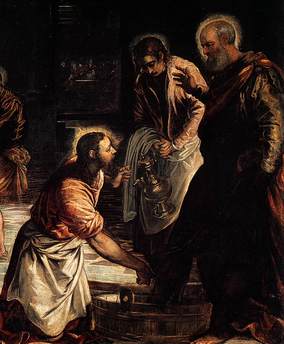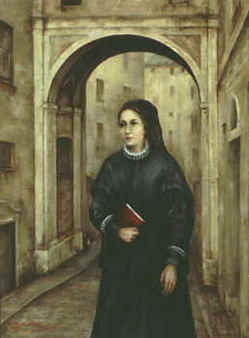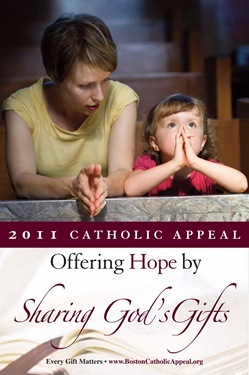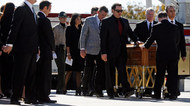The other day the Pope’s Secretary of State Cardinal Tarcisio
Bertone SDB celebrated Mass for the Vatican’s jurists where he noted “with the
beginning of a new judicial year … we are again invited to reflect upon the
relationship between divine and human justice, so that our consciences may be
illuminated and our actions may, as far as possible, correspond to the divine
will and its plan of love for each individual and for the community of man.” Moreover,
Bertone picked up a current theme of Benedict’s these days, that is, that of
justice, in which he called attention to the specific vocation of the Church to
be “a sign and instrument of God’s love [charity], and of His justice which is always an
expression of His merciful love.”
Tag: charity
Catholic priest at the South Pole for Christmas
 Father Steve Rossetti, a priest of the Diocese of Syracuse (NY) and a professor of Theology at the Catholic University of America, is spending the Christmas holiday at the South Pole.
Father Steve Rossetti, a priest of the Diocese of Syracuse (NY) and a professor of Theology at the Catholic University of America, is spending the Christmas holiday at the South Pole.
Pope encourages sustained inter-religious dialogue
Every 5 years a bishop is to make a visit to the Eternal City first to pray at the tombs of Saints Peter and Paul and secondly to make a report to the Pope (and his curia). The church-term for such a meeting is called the “ad limina” — to the threshold of the apostles, the Church, the heartbeat of our faith. It is not a meeting of checking-in with the CEO, CFO and the COO of the company. For a bishop is not a branch manager. This is a gesture of communion between two people who are in love with Christ and His sacrament, the Church; it is a meeting of one pastor meeting the Supreme Pastor, Christ, through the ministry of the See of Peter. It is a time to verify the good being done and to get feedback about what more needs to be done for the good of the faithful. With Benedict’s age I think the 5-year meeting is now about every 7 years.
In recent weeks, Benedict has been meeting with Indonesian bishops. Part of his concluding address to the latest group has an encouragement to advocate inter-religious dialogue. As you can tell, Pope Benedict XVI is a pope of dialogue. The relevant paragraph follows:
Continue reading Pope encourages sustained inter-religious dialogue
Fraternal love and correction essential, Pope reminds
 One of the themes from Oblate retreat this past weekend was humility. And from within the Gospel and Saint Benedict’s vision of humility Brother John Mark spoke about love and fraternal relations, particularly rubbing elbows in true charity with your brother and sister in community. A stone is only polished when it meets other stones.
One of the themes from Oblate retreat this past weekend was humility. And from within the Gospel and Saint Benedict’s vision of humility Brother John Mark spoke about love and fraternal relations, particularly rubbing elbows in true charity with your brother and sister in community. A stone is only polished when it meets other stones.
Continue reading Fraternal love and correction essential, Pope reminds
Charitable work and the common fund: 2 wings of the Christian witness
 I always look for evidence –that is, I am looking for light on a situation that may not be very clear for me– i.e., for the reality, the truth and beauty of a vigorous Catholic life by seeing if people are willing to live the Gospel. We do our best given the graces we’ve received and our own open hearts. I find myself in need to know that others belief that that the promises (and extraordinary claims) of Christ are true and are lived. Novel, right? Not really. We Catholics have been concerned for the welfare of others since the time Jesus and because our Christianity has its roots in Judaism, even before Jesus. Just read the Old Testament and dig into the narrative there. But it is Jesus gives a new lens by which to see life and to live differently today by the fact of the Paschal Mystery (His life, death, resurrection and ascension).
I always look for evidence –that is, I am looking for light on a situation that may not be very clear for me– i.e., for the reality, the truth and beauty of a vigorous Catholic life by seeing if people are willing to live the Gospel. We do our best given the graces we’ve received and our own open hearts. I find myself in need to know that others belief that that the promises (and extraordinary claims) of Christ are true and are lived. Novel, right? Not really. We Catholics have been concerned for the welfare of others since the time Jesus and because our Christianity has its roots in Judaism, even before Jesus. Just read the Old Testament and dig into the narrative there. But it is Jesus gives a new lens by which to see life and to live differently today by the fact of the Paschal Mystery (His life, death, resurrection and ascension).
Continue reading Charitable work and the common fund: 2 wings of the Christian witness
Boston’s Charity’s Appeal
Charity is the only good reason to do anything
The Cistercian
monk, philosopher and theologian Isaac of Stella (1100-1169) was featured in
the Office of Readings today: Charity is the reason why anything should be done
or left undone.
Charity is the only good reason to do anything, but it also
sometimes demands that we not do something we might think we want to do. There
are a lot of fine distinctions one has to make in this area to live spiritually
in common life and ministry. For example:
- We are called to support one another,
but not to enable maladaptive behaviors, debilitating addictions, and sins. We
must bear with the burdens of others, and be willing to wash feet, but we
should not take responsibility for the feelings of others. - We must seek ways to
invite both individuals and institutions to benefit from our strengths, and
invite them into the success that derives from them, but–again–we should be
careful not to take interior or exterior responsibility for situations that the
Holy Spirit has not, or not yet, seen fit to put in our care. - Sometimes the
greatest charity–and often the most painful–is not giving someone what he
thinks he wants. - We must be good to ourselves, practicing good self-care, but
that doesn’t mean taking it easy and just ‘being nice’ to ourselves. On the one
hand, we must not be so hard on ourselves that our whole spiritual life becomes
a rehearsal of faults and sins, for this is one of the devil’s tricks in making
us fail to notice God, and on the other we must also be careful not be overly
forgiving of ourselves so as to effectively give up struggling with certain
selfishnesses and sins. - We must practice the sort of self-charity that
nourishes our gifts and virtues, and is ruthless in the unwillingness to put up
with sin.
Trappist monks donate coffin to bury little Christina Green in Arizona
A beautiful of gesture of charity and hope was given to us as a witness of gospel virtue by the monks of a Trappist monastery in Iowa this week when they gave the Green family the casket in which to bury 9 year old Christina, a victim of the shootings last week. The CNN story is here.
Special thanks to Dom Brendan and the monks of New Melleray Abbey!
Saint Catherine of Genoa: a life of humility, constant prayer & mystical union, charitable service
 “Since I began to love, love has never forsaken me. It has ever grown to its own fullness within my innermost heart.”
“Since I began to love, love has never forsaken me. It has ever grown to its own fullness within my innermost heart.”
Our catechesis today deals with Saint Catherine of Genoa, a fifteenth-century saint best known for her vision of purgatory. Married at an early age, some ten years later Catherine had a powerful experience of conversion; Jesus, carrying his cross, appeared to her, revealing both her own sinfulness and God’s immense love. A woman of great humility, she combined constant prayer and mystical union with a life of charitable service to those in need, above all in her work as the director of the largest hospital in Genoa. Catherine’s writings on purgatory contain no specific revelations, but convey her understanding of purgatory as an interior fire purifying the soul in preparation for full communion with God. Conscious of God’s infinite love and justice, the soul is pained by its inadequate response, even as the divine love purifies it from the remnants of sin. To describe this purifying power of God’s love, Catherine uses the image of a golden chain which draws the soul to abandon itself to the divine will. By her life and teaching, Saint Catherine of Genoa reminds us of the importance of prayer for the faithful departed, and invites us to devote ourselves more fully to prayer and to works of practical charity.
Pope Benedict XVI
summary of Wednesday Catechesis on Saint Catherine of Genoa
Vatican City State, 12 January 2011
The essence and undivided nature of charity by John Duns Scotus
The second reading in the Office of Readings from today’s liturgical memorial [even though it is Sunday in 2009 and Sunday takes precedence over saints’ memorials] of Blessed John Duns Scotus bears posting here. What appears to be vague really is dead-on in thinking about charity and justice. Emphasis mine.


